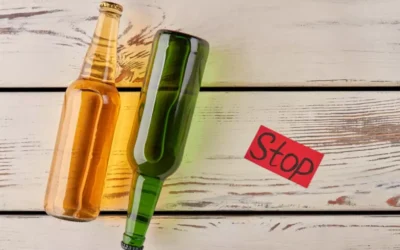Content
Typically, these therapies take place in the evenings, which lets you work around your schedule. Sunnyside is the leading alcohol health platform focused on moderation and mindfulness, not sobriety. On average, members see a 30% reduction in alcohol consumption in 3 months, leading to improved sleep, diet, and overall wellbeing. Drinking heavily how does alcohol affect dopamine can also impair your cognition by affecting your diet and vitamin absorption. Some alcoholics become deficient in an enzyme that prevents them from metabolizing vitamin B1 (thiamine), or they simply don’t eat a nutrient-rich diet, causing malnutrition. The resulting deficiencies can lead to cognitive impairment and alcohol-related brain damage.
- Cognition is the process of your brain working to understand or learn something.
- The good news is that within a year of stopping drinking, most cognitive damage can be reversed or improved.
Concomitantly, adaptations in glutamatergic, GABAergic, and dopamine transmission occur [15] and greater or continued amounts of alcohol can result in allostatic changes to preserve normal brain function. This allostasis is characterized by aberrant glutamate, GABA, and opioid signaling, as well as, a dysfunction in nigrostriatal and mesolimbic dopamine transmission [16, 17]. The mechanisms underlying this dysregulation of dopamine transmission are not well understood, particularly in a primate brain. Therefore, in the current study, we used fast-scan cyclic voltammetry (FSCV) to study dopamine release dynamics in striatal slices from long-term alcohol drinking and control rhesus macaques. This method allows for examination of dopamine release and its regulation on a subsecond time scale that has seldom been used in NHPs [18,19,20,21,22,23,24].
HealthBeat
Additionally, alcohol also affects the brain’s reward system by increasing dopamine levels, leading to feelings of pleasure and euphoria. The alcohol-induced stimulation of dopamine release in the NAc may require the activity of another category of neuromodulators, endogenous opioid peptides. Opioid peptide antagonists act primarily on a brain area where dopaminergic neurons that extend to the NAc originate. These observations indicate that alcohol stimulates the activity of endogenous opioid peptides, leading indirectly to the activation of dopaminergic neurons. Opioid peptide antagonists would interfere with this process, thereby reducing dopamine release.
- The higher-risk subjects were then identified based on personality traits and having a higher tolerance to alcohol (they did not feel as drunk despite having drunk the same amount).
- The release of neurotransmitters allows the brain to control the rest of the body, including everything from telling you when to move a leg to walk, to managing the digestion of your food, to releasing chemicals to help you fall asleep.
- We found that long-term alcohol consumption altered dorsal striatal dopamine release and uptake in a sex- and subregion-dependent manner.
- Even moderate users or those who have been drinking in excess for a short period of time can experience mental fog, anxiety, and mood changes.
The researchers believe this could be a clue as to why some people are predisposed towards alcoholism—and why it’s more difficult for them stay on the wagon if they’re trying to quit. The immediate release of dopamine from just a taste of beer would likely serve as a powerful mechanism that drives their cravings, and a tendency towards experiencing this burst of pleasure might be genetically inheritable. This could be part of the reason that people with a family history of alcoholism are twice as likely to experience alcoholism themselves. A new study from McGill University suggests that people who are at risk for becoming alcoholics have a distinctive brain response when drinking alcohol in comparison to those at low risk for alcohol-use problems. People at high risk showed a greater dopamine response in a brain pathway that increases the desire for rewards according to the lead author of the study Professor Marco Leyton, of McGill University’s Department of Psychiatry.
Alcohol in Your Body
They recruited 604 alcohol-dependent patients, half of whom randomly received nalmefene. Neither patients nor their doctors knew which treatment they were receiving. Patients were instructed to take one tablet on days when they perceived a risk of drinking alcohol.

Whenever you get that rush of pride after accomplishing something, dopamine is probably surging in your brain. In fact, it’s there after you do anything that makes you feel rewarded, like earning money, eating good food, or having sex. Researchers are also investigating whether drugs that normalize dopamine levels in the brain might be effective for reducing alcohol cravings and treating alcoholism.
Ways Quitting Drinking Affects Your Brain
Years of alcohol abuse can damage this area of the brain extensively, leading to a wide variety of issues including memory loss and the inability to think rationally. The human brain has an amazing ability to recuperate and rebuild itself after abstaining from alcohol. The rehabilitation process, however, might differ depending on the intensity and duration of alcohol misuse, age, overall health, and heredity. According to the National Institute on Alcohol Abuse and Alcoholism, roughly 14.5 million persons aged 18 and up had an alcohol use problem in 2019. Furthermore, excessive alcohol consumption is estimated to cost the United States economy over $249 billion annually in healthcare expenses, lost productivity, and criminal justice costs.
